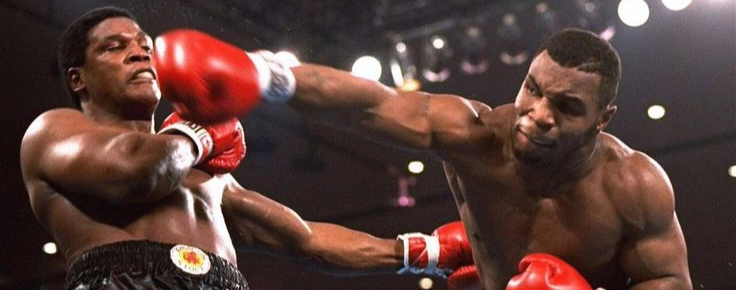Muhammad Ali — More Than a Champion
He wasn’t just a boxer. He was the voice of a generation.Muhammad Ali turned sports into a stage for principle and turned his career into a powerful fight for justice and dignity.
Born Cassius Clay in 1942, he quickly rose through the boxing ranks, and at just 22, he shocked the world by defeating Sonny Liston to become the heavyweight champion. But the real story began after the title.
In 1964, he converted to Islam and changed his name to Muhammad Ali, rejecting what he called a "slave name." It was a bold move that drew criticism, but Ali never backed down. He spoke openly about racism, injustice, and the rights of Black Americans.
In 1967, he refused to be drafted into the U.S. Army during the Vietnam War, declaring:
“I ain't got no quarrel with them Vietcong… No Vietcong ever called me nigger.”
Those words echoed around the world. He lost his championship title, was banned from boxing, and faced a five-year prison sentence (though he never served time). At the height of his career, he was silenced — but never broken.
Ali became a global symbol of resistance and moral courage. When he returned to the ring three years later, he did so not just as a fighter, but as a hero. In 1974, he reclaimed the heavyweight title in the legendary "Rumble in the Jungle" against George Foreman.
But Ali’s greatness wasn’t just in his fists. It was in his voice, his heart, and his mind. He inspired millions with lines like:
“I don’t fight because I hate what’s in front of me. I fight because I love what’s behind me.”
Even after retiring, Ali continued to champion peace, charity, and compassion. Despite battling Parkinson’s disease, he remained a symbol of strength, hope, and dignity.

Muhammad Ali wasn’t just the greatest inside the ring — he was a revolutionary outside of it. He used his platform to challenge not only opponents, but oppressive systems. In a time when athletes were expected to “shut up and play,” Ali did the opposite: he spoke louder, stood taller, and refused to separate sports from society.
He turned press conferences into performances. With poetic taunts, dazzling wordplay, and a confidence the world had never seen before, he redefined what it meant to be an athlete. “Float like a butterfly, sting like a bee” wasn’t just a phrase — it was a philosophy. Ali brought elegance and rhythm to boxing, dancing around his opponents with both physical and verbal finesse.
But behind the bravado was a razor-sharp mind and an unshakeable moral compass. He knew exactly what he stood for. Ali’s resistance to the Vietnam War wasn’t impulsive — it was rooted in faith, principle, and a deep understanding of injustice. He risked everything: his career, his reputation, and even his freedom. When most would have chosen silence to preserve success, he chose truth — no matter the cost.
That sacrifice elevated him from athlete to icon. While others sought medals and titles, Ali sought meaning. His stance resonated far beyond boxing. He became a figurehead for civil rights, a model of religious freedom, and a global voice for the oppressed.
Throughout his storied career, Ali faced — and defeated — some of boxing’s fiercest legends: Joe Frazier, Ken Norton, Sonny Liston, and George Foreman. Each bout wasn’t just a match; it was a moment in history. From the brutal “Thrilla in Manila” to the triumphant “Rumble in the Jungle,” Ali turned every fight into a narrative — a clash of ideals, character, and resilience.
Yet perhaps his most profound victories came not with punches, but with peace. In retirement, Ali traveled the world as a humanitarian and goodwill ambassador. He met with world leaders, visited refugee camps, and advocated for unity across cultures and religions. His 1990 trip to Iraq to negotiate the release of 15 American hostages was a testament to the respect he commanded far beyond any boxing ring.
Even as Parkinson’s disease slowly diminished his physical abilities, it never dimmed his spirit. He continued to make public appearances, lighting the Olympic torch in 1996 with trembling hands — a moment that brought the world to tears. His silence in later years spoke as loudly as his words once did: a man who had given everything to his cause, and now stood as a living monument to endurance.
Ali received countless honors — the Presidential Medal of Freedom, a star on the Hollywood Walk of Fame, and global accolades — but none of them fully captured his impact. He wasn’t simply admired; he was loved. By people of all colors, faiths, and nations.
He reminded the world that greatness isn’t just about victory — it’s about conviction. He showed that a fighter could be gentle, a champion could be humble, and that even the loudest voices could speak for peace.
When Muhammad Ali passed away in 2016, the world didn’t just lose a sports legend — it lost a conscience. Yet his legacy lives on, not only in highlight reels and history books, but in the countless people he empowered to stand tall, speak out, and never back down.
Because Ali was never just boxing.Ali was belief in motion.
Close